Intro
Improve kidney health with 5 essential diet tips, incorporating kidney-friendly foods, low-sodium recipes, and balanced nutrition to manage kidney disease and promote overall wellbeing.
Maintaining a healthy diet is crucial for overall well-being, and this is especially true for individuals with kidney disease or those looking to support kidney health. The kidneys play a vital role in filtering waste and excess fluids from the blood, and a diet that is tailored to support these functions can make a significant difference. With the right approach, it's possible to manage kidney health effectively, reducing the risk of complications and improving quality of life. For those seeking to take control of their kidney health through dietary changes, there are several key considerations to keep in mind.
The importance of a kidney-friendly diet cannot be overstated. It not only helps in managing kidney disease but also in preventing its progression. By understanding what foods are beneficial and which ones should be limited, individuals can make informed choices that support their overall health. Moreover, a well-planned diet can help in reducing the burden on the kidneys, allowing them to function more efficiently. This, in turn, can lead to better health outcomes and a reduced risk of kidney-related complications.
For individuals looking to adopt a kidney-friendly diet, it's essential to start with the basics. This includes understanding the role of different nutrients and how they impact kidney function. With this knowledge, it's possible to make dietary choices that are not only delicious but also supportive of kidney health. Whether you're looking to manage existing kidney disease or simply want to support your overall well-being, a thoughtful approach to diet can make all the difference. By exploring the various aspects of a kidney-friendly diet, individuals can empower themselves with the knowledge needed to make positive changes.
Understanding Kidney Disease and Diet
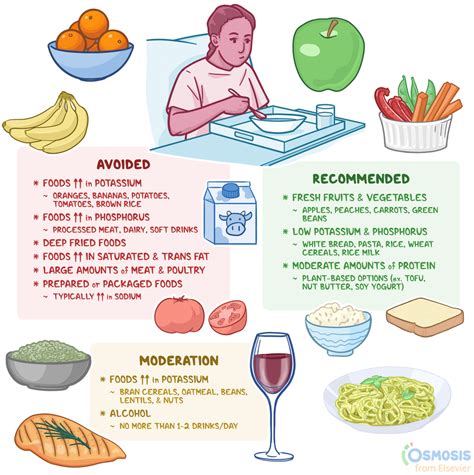
Key Components of a Kidney Diet
A well-planned kidney diet should include a variety of foods from all food groups. This includes fruits, vegetables, whole grains, lean proteins, and low-fat dairy products. It's also important to limit or avoid foods that are high in sodium, added sugars, and saturated fats. Additionally, staying hydrated by drinking plenty of water is essential for helping the kidneys function properly.Implementing a Kidney-Friendly Diet
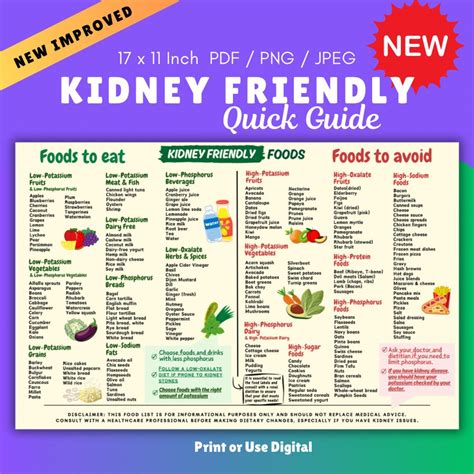
Benefits of a Kidney Diet
The benefits of a kidney diet are numerous. Not only can it help in managing kidney disease, but it can also reduce the risk of other health complications, such as heart disease and diabetes. A kidney-friendly diet can also help in maintaining a healthy weight, improving blood pressure control, and supporting overall well-being. By making a few simple changes to dietary habits, individuals can take a significant step towards protecting their kidney health.Kidney Diet Tips for Daily Life
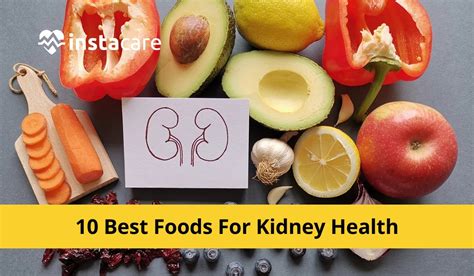
Common Mistakes to Avoid
When following a kidney diet, there are several common mistakes to avoid. These include consuming too much protein, which can put additional strain on the kidneys, and not staying hydrated enough. It's also important to avoid foods that are high in phosphorus and sodium, as these can exacerbate kidney disease. By being mindful of these potential pitfalls, individuals can ensure that their dietary choices are supporting their kidney health.Managing Kidney Disease with Diet and Lifestyle
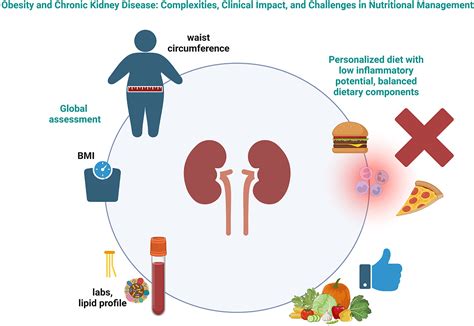
Lifestyle Changes for Kidney Health
Lifestyle changes can play a significant role in supporting kidney health. This includes quitting smoking, limiting alcohol consumption, and maintaining a healthy weight. Regular exercise, such as walking or swimming, can also help in reducing blood pressure and improving overall health. By making a few simple lifestyle changes, individuals can take a proactive approach to protecting their kidney health.Nutritional Considerations for Kidney Health
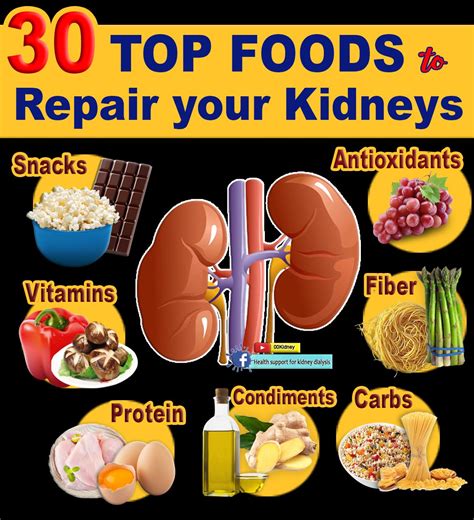
Role of Potassium in Kidney Health
Potassium plays a critical role in maintaining kidney health. It's an essential mineral that helps in regulating fluid balance and blood pressure. However, individuals with kidney disease may need to limit their potassium intake, as the kidneys may have difficulty removing excess potassium from the body. By understanding the role of potassium and other nutrients, individuals can make informed choices about their diet and support their kidney health.Conclusion and Next Steps

We invite you to share your thoughts and experiences with kidney health and diet in the comments below. Have you made any significant changes to your diet or lifestyle to support your kidney health? What challenges have you faced, and how have you overcome them? Your insights and stories can help inspire and motivate others who are on a similar journey. Additionally, if you found this article informative and helpful, please consider sharing it with others who may benefit from this information.
What are the key components of a kidney-friendly diet?
+A kidney-friendly diet should include a variety of foods from all food groups, such as fruits, vegetables, whole grains, lean proteins, and low-fat dairy products. It's also important to limit or avoid foods that are high in sodium, added sugars, and saturated fats.
How can I manage kidney disease through diet and lifestyle changes?
+Managing kidney disease requires a comprehensive approach that includes both diet and lifestyle changes. This can include following a kidney-friendly diet, engaging in regular physical activity, managing stress, and getting enough sleep. It's also important to work closely with a healthcare provider to develop a personalized plan.
What role does potassium play in kidney health?
+Potassium is an essential mineral that helps in regulating fluid balance and blood pressure. However, individuals with kidney disease may need to limit their potassium intake, as the kidneys may have difficulty removing excess potassium from the body.
